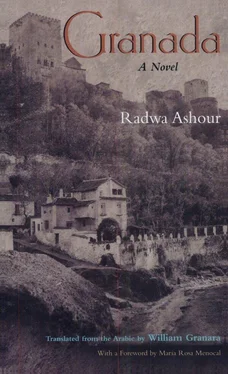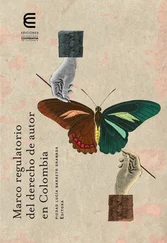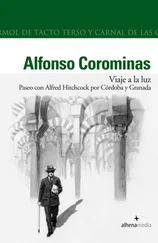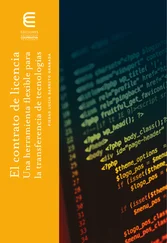Radwa Ashour - Granada
Здесь есть возможность читать онлайн «Radwa Ashour - Granada» весь текст электронной книги совершенно бесплатно (целиком полную версию без сокращений). В некоторых случаях можно слушать аудио, скачать через торрент в формате fb2 и присутствует краткое содержание. Год выпуска: 2003, ISBN: 2003, Издательство: Syracuse University Press, Жанр: Современная проза, Историческая проза, на английском языке. Описание произведения, (предисловие) а так же отзывы посетителей доступны на портале библиотеки ЛибКат.
- Название:Granada
- Автор:
- Издательство:Syracuse University Press
- Жанр:
- Год:2003
- ISBN:9780815607656
- Рейтинг книги:5 / 5. Голосов: 1
-
Избранное:Добавить в избранное
- Отзывы:
-
Ваша оценка:
- 100
- 1
- 2
- 3
- 4
- 5
Granada: краткое содержание, описание и аннотация
Предлагаем к чтению аннотацию, описание, краткое содержание или предисловие (зависит от того, что написал сам автор книги «Granada»). Если вы не нашли необходимую информацию о книге — напишите в комментариях, мы постараемся отыскать её.
Granada — читать онлайн бесплатно полную книгу (весь текст) целиком
Ниже представлен текст книги, разбитый по страницам. Система сохранения места последней прочитанной страницы, позволяет с удобством читать онлайн бесплатно книгу «Granada», без необходимости каждый раз заново искать на чём Вы остановились. Поставьте закладку, и сможете в любой момент перейти на страницу, на которой закончили чтение.
Интервал:
Закладка:
“It dazzles the eyes. A magnificent gift, don’t you think?” he asked.
Saad thanked him and meandered on toward the jewelers’ lane where he inspected the displays of gold and silver trinkets. He was stunned by the sight of all the precious gems. He stood for a long time in front of a necklace of connected gold rings with a pendant made from a precious stone as blue as the deep blue sea. “Now, that’s a gift befitting Saleema with her blue eyes,” he thought to himself. When he noticed that the owner was watching him, Saad moved away to avoid an embarrassing situation, since he was in no position to be buying a piece of jewelry such as this.
He headed toward the junk dealers’ market before going into the tinsmiths’ quarter. He passed by the silk vendors where they laid out their wares of raw, interlaced, and woven silks. One of the vendors shouted out to Saad, “Pure silk! They come from as far away as Genoa to buy it, and it’s in high demand in Cairo and Damascus.”
“Do you have any silk from Malaga?”
The vendor flashed a sorrowful smile. “What kind of question is that? Where are we going to get silk from Malaga? Have any of us been able to go back?”
Saad walked on not saying a word. What could possibly be said besides an apology for the heart that suddenly asks for something it cannot have? To hold in his hands a piece of silk woven by his father and with the scent of the sea and of his mother. How strange the heart is!
He strolled on through the tinsmiths’ quarter and veered toward a small side street that lead to another, and then another. He looked at all the shops that sold fabric for men’s clothing, women’s garments, scarfs, headwear, sandals and shoes. He decided to leave and head back toward the Square of the Grand Mosque until he reached the food and sweets vendors. He saw displays of dried figs, walnuts, and almonds piled high in big straw baskets.
What would be an appropriate gift for Saleema? he thought, as he continued his walk.
He thought long and hard as he made his way toward the open space next to the souk. He walked around it until he reached the livestock market. He glanced at the horses, mules, donkeys, sheep, and goats, and just as he was about to turn back and head home, he saw what he was looking for. Was it the blink of her eye or the shutter of her eyelid that brought him to a halt, or merely a glance of distraction between fear and composure?
Her skin was so smooth and white, with a reddish yellow tinge, and her tiny body was held by four delicate paws. “Can I hold her?” He lifted her up and felt her quivering in his arms. “I’ll take her,” he said to the vendor as he handed him the money and left.
The gazelle Saad bought for Saleema and carried to Abu Jaafar’s house aroused in Umm Jaafar a fit of laughter that brought tears to her eyes. Umm Hasan took one look at her and repeated what she thought all along, that he was crazy. Saleema, for her part, was taken aback. She went over to the gazelle and stretched out her hand to pat her. When the gazelle quivered, so did Saleema, and she pulled back her hand. She stared at her intensely and noticed how its wide, black eyes flickered in fear. “She’s afraid,” she said. Then she stretched out her hand once again, only this time very slowly, and although the gazelle didn’t quiver this time, Saleema could sense a reaction as she stroked her gently. She went and got a small bowl of milk and sat down next to her as she drank. Saleema spent the rest of the day occupied with the gazelle, leaving her side only to fetch her some food or water. That night she quarreled with her mother, who insisted that the animal be tied up in the outer courtyard. However, Saleema persisted that she stay with her in her room. Umm Hasan protested: “Does that make sense? Do beasts belong in bedrooms?”
“First of all, she’s not a beast,” Saleema retorted. “Besides, she could catch cold or be attacked by a wild bird.”
Neither Umm Hasan nor Saleema were willing to give in, and it was only when Umm Jaafar intervened and suggested that the gazelle stay on the veranda that the squabble came to an end. “On condition that you clean up after it in the morning,” she added.
Both Saleema and her mother agreed and everyone went to bed. When Saleema was sure that her mother had fallen asleep, she piled up her mattress and crept softly out of the room.
“Where are you going?” asked her grandmother.
“I’m going to sleep on the veranda. The heat is stifling me. Good night, Grandmother.”
“Good night,” replied Umm Jaafar, giggling to herself.
A week before the wedding, the scent of celebration permeated the house of Abu Jaafar. The aromas of savory pastries fried in olive oil followed Naeem and Hasan to friends and neighbors’ houses as each one delivered leather-skinned vessels stacked with honey-soaked cakes, bringing them from one house to another and coming back only to start over again. Umm Jaafar, Umm Hasan, and a third relative worked from dawn, sifting the flour, kneading and leavening the dough, and shaping it into little triangles. Then they fried them in large copper pans that sat on the stove from dusk to dawn. They placed the sheets of dough into the scalding oil, and, when they turned into a golden crisp, they removed them, drained them of the excess oil, and layered them in stacks.
Two days before the wedding, three mule-teamed carriages were seen leaving the house carrying Saleema, her mother, and grandmother to the Hana Bathhouse. Several women from the neighborhood and their small children, as well as a few girls Saleema’s age, joined the bridal procession. They brought baskets neatly packed with fresh towels and clean clothes, washcloths and loofahs, water scoops and soap. They also brought small jars and vessels of henna, musk, as well as almond and olive oils.
The roasted sheep Umm Jaafar had prepared the night before was placed in a huge, tightly sealed copper pot, and two of the muleteers helped carry it onto the carriage. The neighbors brought the drums and tambourines, and to celebrate the festive occasion they prepared delicious pastries soaked in honey and stuffed with cheese and aniseed or crushed walnuts. They also brought the sweet fruit ciders they brew and set aside in bottles for such special occasions.
When the bridal party entered the bathhouse, the youngsters shouted, the women ululated, and everyone wished each other good fortune and prosperous marriages. They set down their bundles and went to take off their clothes. They wrapped towels around their waists and shoulders, some covering the breasts and others not bothering at all. As they moved into the baths, the voice of one of the women rose above the din as she recalled the day Umm Hasan gave birth to Saleema fourteen years ago.
“I held her in my arms and I caressed her against my breast, and I said to you, Umm Hasan, ‘May God grant me a life long enough to bathe her on her wedding day!’ Do you remember?”
She didn’t, but answered, “Of course, I remember.”
The woman sat Saleema down in front of her and untied her braids, and with a scoop she dipped into the hot water and poured it over her head. As the other women began to ululate once again, one of them took the tambourine and started to sing the customary wedding songs that were frequently interrupted by exclamations of wishes for a long life and healthy offspring. The children danced in excitement despite their mothers’ warnings against breaking an arm or a leg on the slippery floors.
When the neighbor finished scrubbing, depilating, and perfuming Saleema’s body and lathering and rinsing her hair, she asked her to stand up in order to inspect her work. She removed the towel that was wrapped around Saleema’s waist, and Saleema found herself as naked as the day she was born in front of all the women. She blushed, and in her confusion she started to grab the towel to cover herself, but not wanting to appear childish she stood motionless, embarrassed but too proud to show it.
Читать дальшеИнтервал:
Закладка:
Похожие книги на «Granada»
Представляем Вашему вниманию похожие книги на «Granada» списком для выбора. Мы отобрали схожую по названию и смыслу литературу в надежде предоставить читателям больше вариантов отыскать новые, интересные, ещё непрочитанные произведения.
Обсуждение, отзывы о книге «Granada» и просто собственные мнения читателей. Оставьте ваши комментарии, напишите, что Вы думаете о произведении, его смысле или главных героях. Укажите что конкретно понравилось, а что нет, и почему Вы так считаете.












